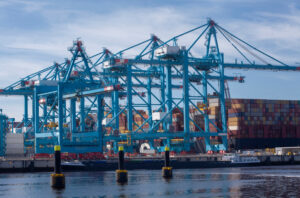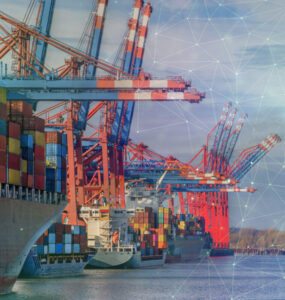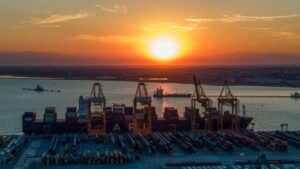The International Chamber of Shipping (ICS) has made the reduction of sulphur and greenhouse gas (GHG) emissions a priority at its latest board meeting in London, UK.
Speaking to senior representatives of shipowners’ associations, ICS Chairman Esben Poulsson asserted the game-changing potential of 2020’s global sulphur cap, which is predicted to have “profound implications for the economics of shipping”.
Poulsson said: “We are rapidly moving into a multi-fuel future to be followed we hope, in the 2030s, by the arrival of commercially viable zero CO2 fuels suitable for global application.”
Simon Bennett overviews the IMO greenhouse gas strategy for a sustainable future in a recent Port Technology technical paper
Attendees of the meeting reviewed their progress in persuading the UN’s International Maritime Organization (IMO) to address possible implementation problems of the 2020 cap, including safety and fuel compatibility issues associated with the use of new 0.5% sulphur blends.
In addition to this, there is continuing uncertainty over the availability of compliant fuels in every port worldwide, a particular challenge for tramp trades.
Shipowners will have to begin ordering compliant fuels in the coming months, placing pressure on the IMO’s Marine Environment Protection Committee to deliver solutions at its next meeting in May 2019.
The Chamber’s President and Director General representing the #CyprusShipping Industry at the International Chamber of Shipping – Board of Directors Meeting, today in London. pic.twitter.com/w8P85AoAK9
— Cyprus Shipping Chamber (@CYShipping) February 5, 2019
Poulsson commented: “While fuel suppliers must play their part in providing sufficient quantities of safe and compliant low sulphur fuels, shipowners must urgently prepare their ship specific implementation plans for 2020.
“This should be carried out using the IMO template adopted at the industry’s request and the detailed advice prepared by ICS which we have just updated to take account of other recent IMO decisions.
“This will be vital to reduce the possibility of teething problems or in the event of initial Port State Control difficulties due to factors beyond the shipowner’s control.”
ICS Chairman Delivers Trade War Warning #PTIDaily SEE MORE: https://t.co/Bx2dfCdV70@shippingics #tradewar #shipping #finance pic.twitter.com/azU8vV5c4U
— Port Technology (PTI) (@PortTechnology) November 13, 2018
The ICS Board has also endorsed the finalisation of proposals to the IMO regarding ambitious GHG reduction targets, which consist of a 40% efficiency improvement by 2030 and a 50% total cut in the sector’s GHG emissions by 2050.
Proposals include the tightening of the Energy Efficiency Design Index (EEDI) for new ships, requiring ships built in 2025 to be 30% more efficient than those delivered before 2013.










